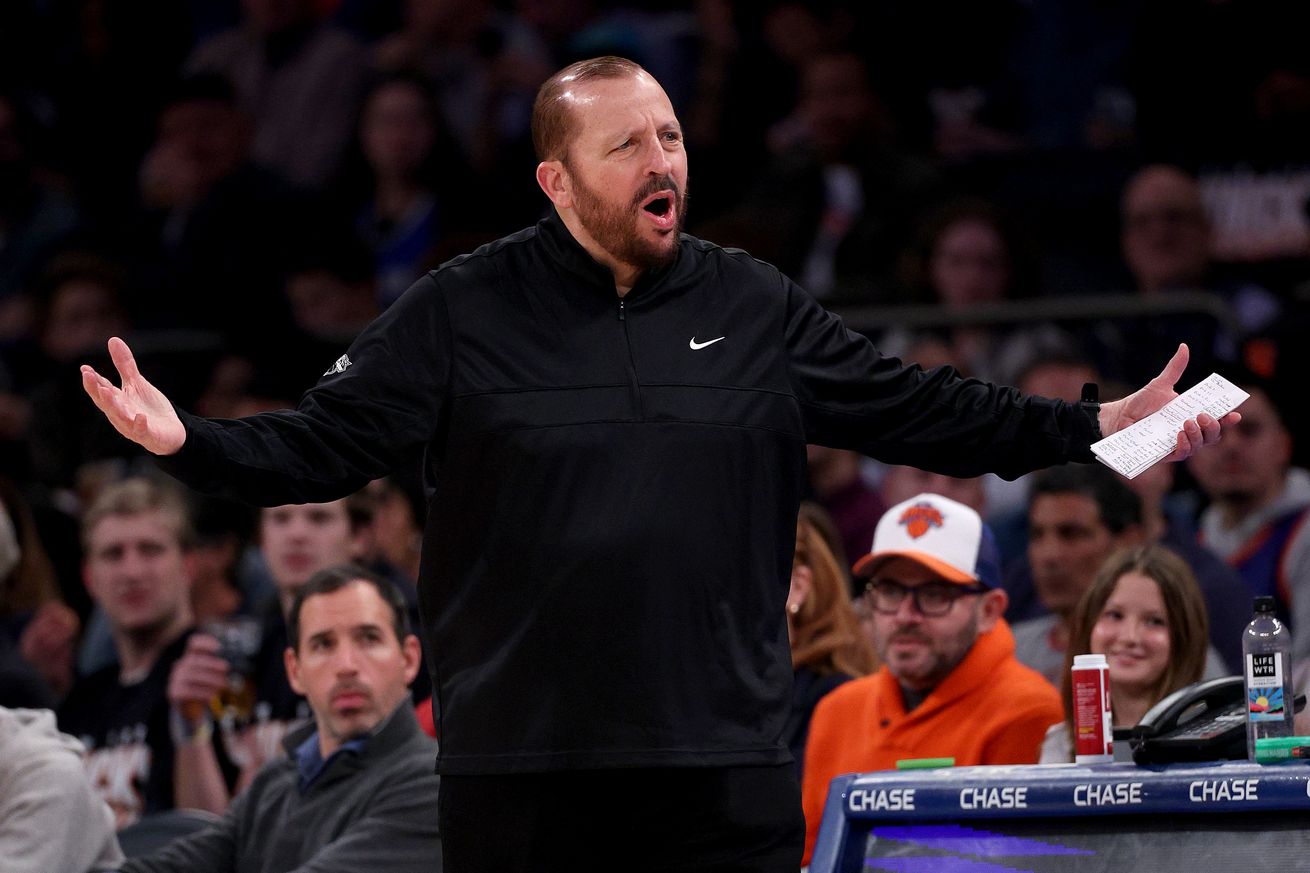
The worst part is, he refuses to change.
Tom Thibodeau and playing his starters big minutes: it’s hard to name a more iconic aspect of an NBA coach’s current reputation. This pattern has held true throughout Thibodeau’s four-season tenure as the Knicks’ coach. We’ve seen him persistently play Julius Randle regardless of his performance, while Obi Toppin, clearly ready to make a positive impact, sat on the bench for the vast majority of games. Similarly, Alec Burks, miscast as a point guard, took the court while the promising playmaker Immanuel Quickley was limited to just 23 minutes per game that season.
Some fans and analysts thought that, after the injuries the Knicks suffered last season, Thibodeau might finally be open to change. Instead, the stubborn coach has doubled down. His minutes distribution is even more skewed, his bench use is worse than ever, and his well-known reluctance to trust rookies has somehow grown even more apparent.
Sure, Tyler Kolek, Pacome Dadiet, and Ariel Hukporti may not yet be at the same level as Quickley or Toppin were when they began. And Thibodeau would likely argue that his handling of those players’ minutes and roles contributed to their development. But in a recent game, the Indiana Pacers played Johnny Furphy for four minutes—two more than Kolek received. They also played Enrique Freeman, the 50th pick in this summer’s draft, for nine minutes, while Quenton Jackson, an undrafted 26-year-old in just his second season, got 11 minutes. That’s a combined 24 minutes for three players who had logged just 19 NBA games prior to last night.
Nobody is asking Thibodeau to entrust the entirety of the second unit to these rookies. They’re going to have growing pains, and expecting them to play 20 minutes per game is unrealistic for a team aiming for a championship. But there’s absolutely no reason Thibodeau can’t find at least a few minutes for the aforementioned players.
In recent games, particularly in the losses, it’s been clear that the team needs more playmaking and shooting off the bench. Kolek is currently leading the league in three-point percentage among players who have taken more than two attempts, and he was widely regarded as one of the best passers in college basketball last season. The Knicks could certainly use him, and with Cameron Payne sidelined with a hamstring injury, finding 10+ minutes for Kolek shouldn’t be difficult.
As for Hukporti, he likely won’t drastically change the game, but are we really to believe that Thibodeau can’t give him some of Jericho Sims’ and Karl-Anthony Towns’ minutes just to keep the latter fresher for critical moments? And Dadiet, in his limited minutes, has shown promise—good motor, shooting ability, cutting, passing, and defensive effort. It’s hard to argue he’d be any less effective than Jackson, Freeman, or Furphy, who all saw playing time in the Pacers’ win over the Knicks last night.
Again, Thibodeau doesn’t need to feature any of these players prominently. The team is clearly in a win-now mode and can’t afford to hand significant roles to rookies. But with Mitchell Robinson and Precious Achiuwa out, plus Landry Shamet missing the role he held in the preseason, Thibodeau could easily allow these players to share 10-20 minutes a night, giving each starter an extra minute or two of rest. His lack of flexibility and trust, however, is hurting the team.
In recent losses to Houston, Atlanta, and Indiana, the Knicks have struggled in the fourth quarter. Defensively, they’ve been a step slow on rotations and closeouts, leading to numerous open threes and placing them 23rd in the league in fourth-quarter points allowed per game. Offensively, while they’re still among the league’s best overall, they rank just 27th in fourth-quarter scoring. If Thibodeau wanted to keep Kolek, Hukporti, and Dadiet on the bench when the team is fully healthy, it would be more understandable. But having three players in the top 20 in minutes per game, all playing 36 minutes or more, is unsustainable when it’s only yielding a record of 4-5.
Now, none of this is surprising per se. But, unfortunately, it seems unlikely that anything will change unless there’s an injury or the team endures a significant losing streak.
